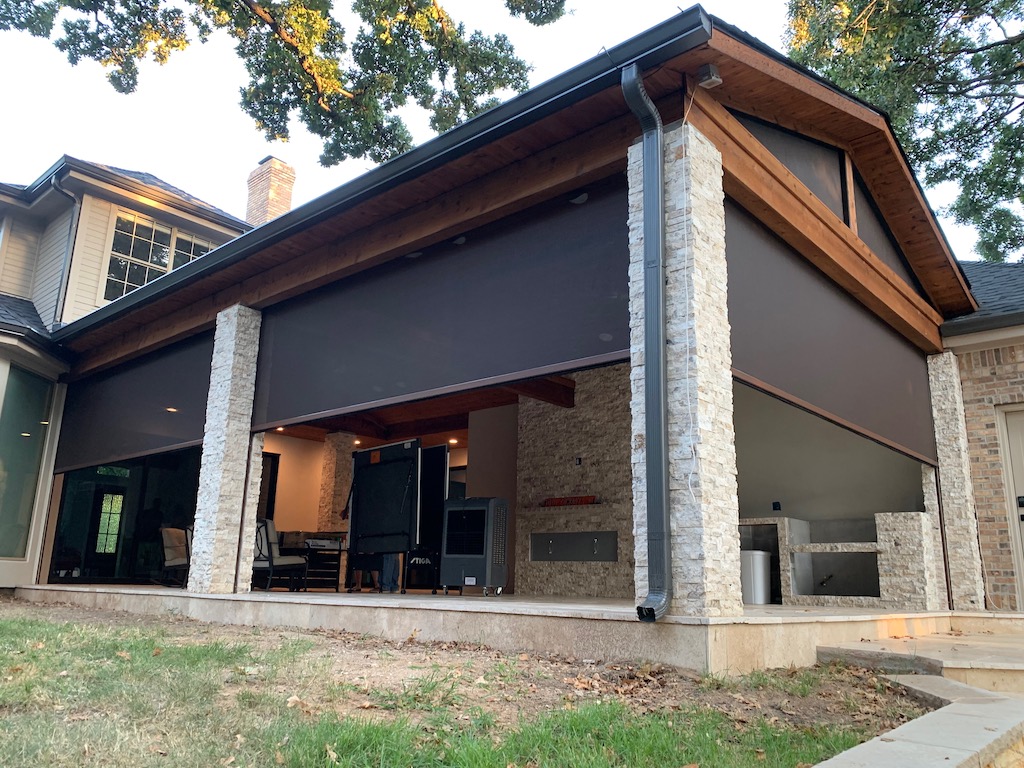
Q: Are Solar Screens easy to clean?
A: Yes, they only need an occasional cleaning with mild soap and water. They are also mildew and fade resistant.
Q: How much will Solar Screens darken the interior?
A: While UV blockage is 65% to 90%, actual visibility is diminished by only 15% to 40% depending on the screening fabric selected. Light through Solar Screens is not tinted, but it is reduced in volume, allowing good light with reduced glare. (However, there are no current statistics available as each person’s home will be subject to several different variables such as: the angle of the sun on your windows, orientation of the house, interior design, and the number of trees in the yard).
Q: Do Solar Screens block airflow?
A: Solar Screens still allow good airflow.
Q: How are Solar Screens at insect protection?
A: These products protect against insects and can replace regular insect screening on windows, doors and porches.
Q.Why are solar screens a better choice than window films?
A: Film is an interior application and is not designed for double pane windows. It is not nearly as effective as solar screens, and voids out all window warranties, it damages the sealed thermal pane windows.
Q: Will Solar Screens affect houseplants?
A: No. Most houseplants require filtered light. Shading reduces yellowing and water loss. In most cases, plants do better with shading than without but will require some amounts of direct sunlight.
Q: How are Solar Screens installed?
A: The mounting method depends on your window. They can be directly screwed onto the window or mounted with clips for easier removal. In rare cases, we can use brick clips.
Q. Should I remove my solar screens during the winter?
A: No, some people think they will get more benefit from passive solar heating with the solar screen off in the wintertime. However, there are less daytime hours in the winter season, it is also usually more overcast, limiting your chances of passive solar heating. Solar screens also create somewhat of a barrier, keeping the cold winter winds off your glass, similar to a storm window, therefore, keeping the temperature of the glass warmer. The warmer you keep the glass, the less convection heat you need to pay to pump through your house will be attracted to the glass areas, conserving energy.
